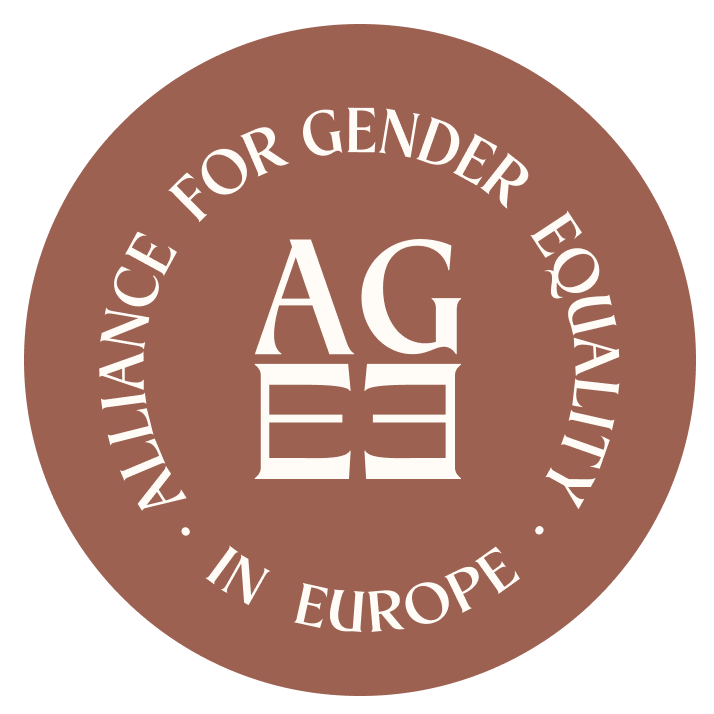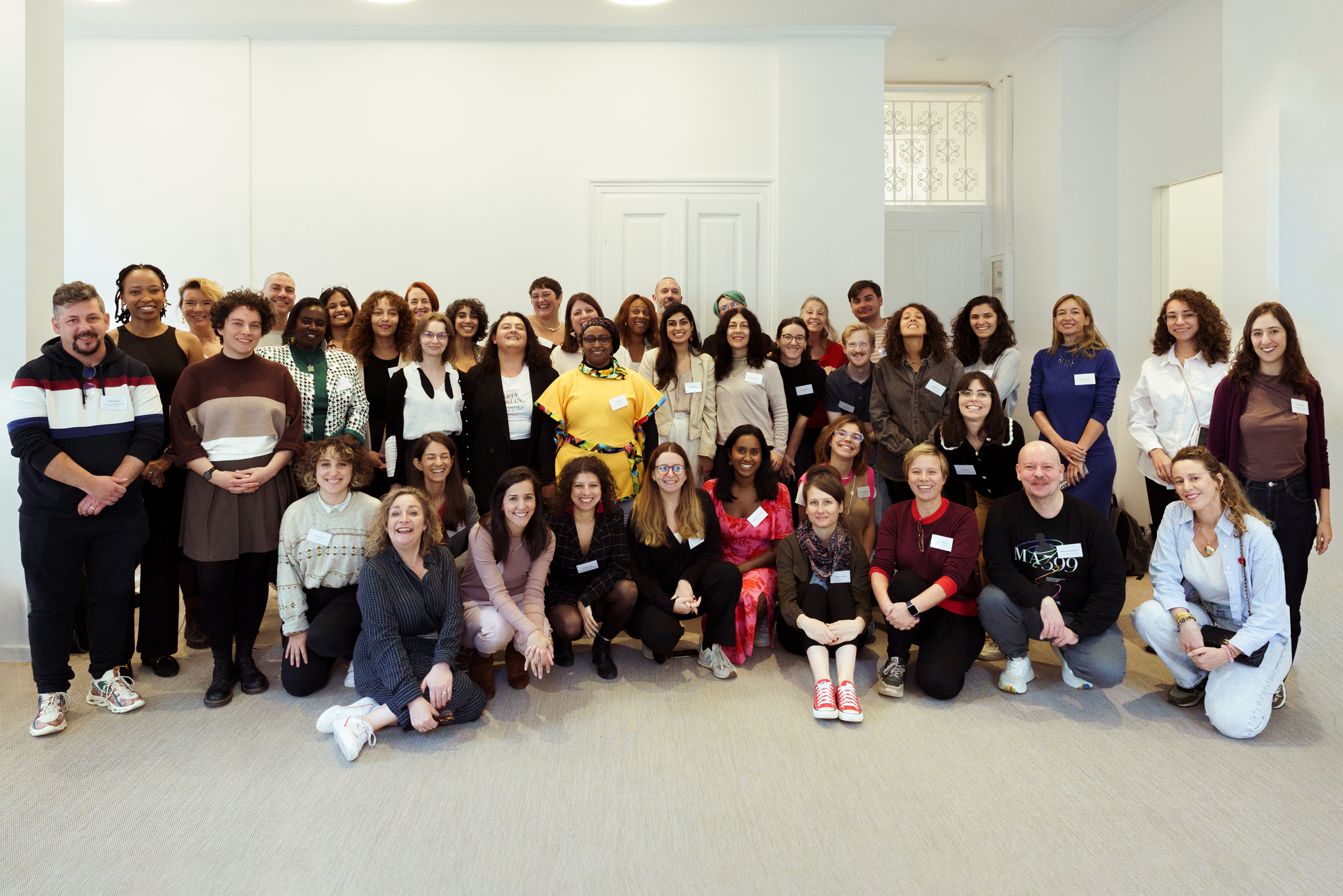In November, the Alliance for Gender Equality in Europe convened 32 grantee partners, alongside its steering and advisory committee members, for a two-day gathering in Athens, Greece. This event showcased the power of bringing people together to build connections and community grounded in a shared purpose: advancing gender equality in Europe.
Held at the WHEN Hub, Greece’s first working hub for women with on-site childcare (financially supported by the Alliance’s Economic Opportunities Sub-fund), the convening provided rich lessons on how thoughtfully designed gatherings can create an impact that endures long after participants return home.
Five key takeaways for organising strategic convenings
1. Co-design the agenda with grantee partners
A participatory approach was central to this convening’s success. Four grantee partners volunteered to join a newly formed grantee committee, ensuring the agenda reflected their perspectives and included content that was relevant, practical, and valuable.
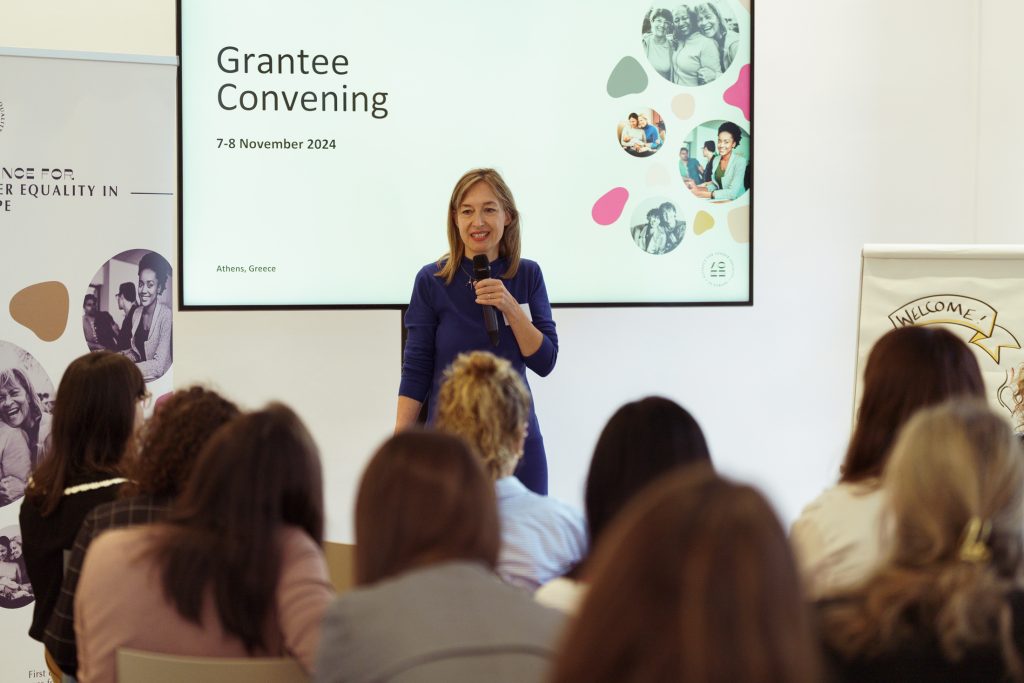
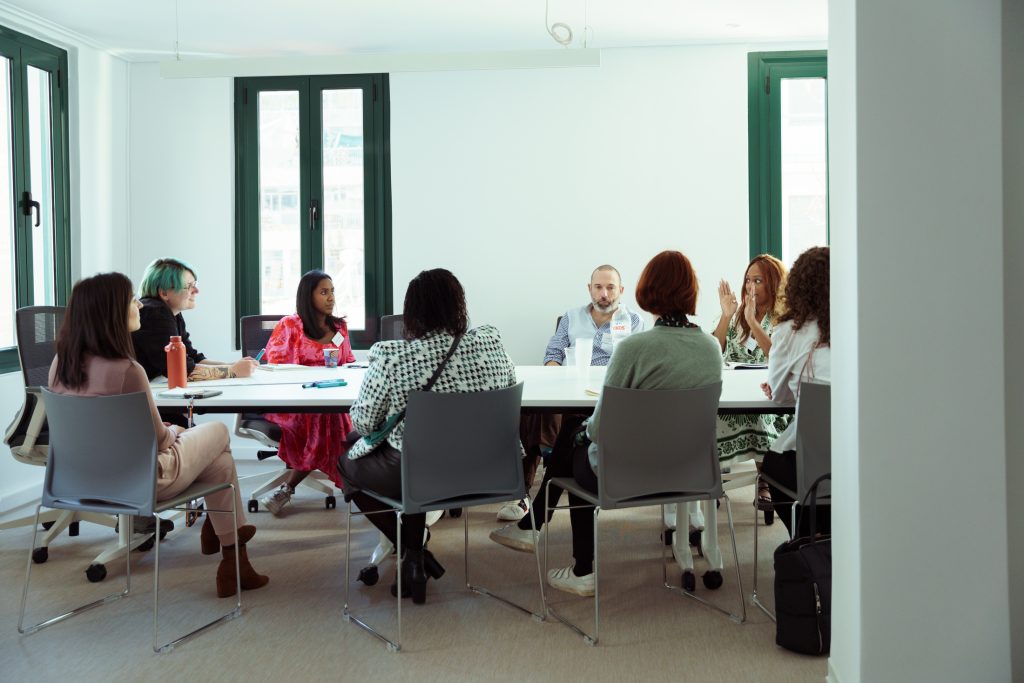
We also integrated feedback from last year’s event, collected via a survey, to shape discussion formats and session topics tailored to participants’ needs. As one grantee noted, “I felt like our feedback from the last convening was considered.” The result was a “human timetable” that balanced plenary sessions, small-group discussions, and moments for individual reflection.
By involving grantees early in the planning process and actively integrating their feedback, the convening was carefully curated to allow our grantee partners to connect meaningfully with the sessions and with one another. Participants left feeling informed yet energised: “I left feeling full of information but not exhausted by the schedule.”
2. Prioritise engaging facilitation
Creating an inclusive and supportive environment requires skilled facilitation. This year, we partnered with Joanna Maycock, an award-winning feminist organiser and campaigner, whose energetic and empathetic approach created a welcoming and productive atmosphere. One participant shared: “I felt even more warm and fuzzy and included than last year.”
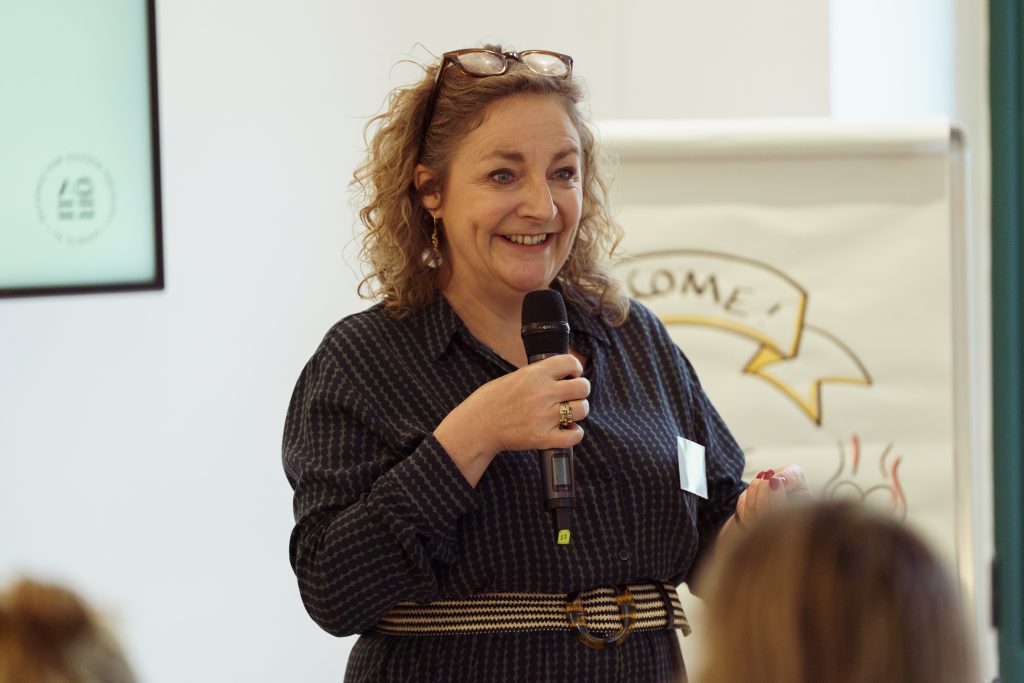
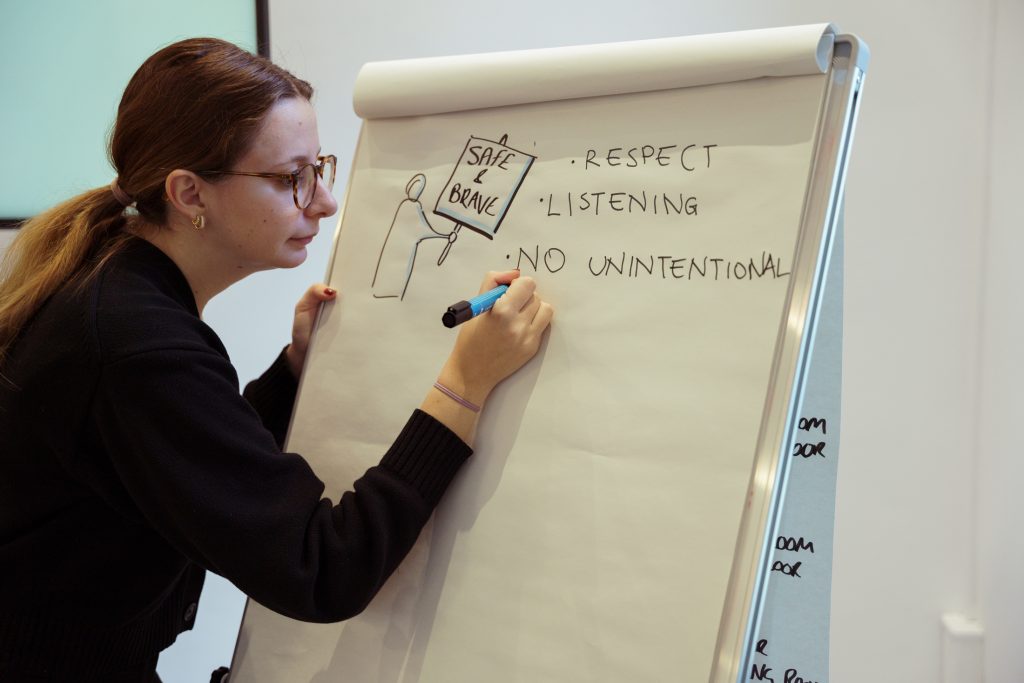
At the start of the convening, participants collectively set intentions for the gathering, including how to make it a safe and brave space. This wasn’t just a formality or a box-ticking exercise. By ensuring everyone felt respected and valued, the convening became a space of joy and action. This was reflected in participants’ feedback, as they overwhelmingly described the convening as inclusive, accessible, and supportive.
Engaging facilitation not only enriched the event itself but also inspired participants to carry this collaborative energy forward into their own work.
3. Position grantee partners as experts
Convenings are more impactful when they elevate the expertise already in the room. This year’s agenda celebrated grantee partners as experts by creating opportunities for peer-led learning. Through small-group “World Café” sessions, participants shared insights on the following topics:
- Collective resilience and well-being strategies
- Day-to-day intersectionality practices
- Financial resilience strategies
- Feminist leadership practices
- Engaging with the private sector
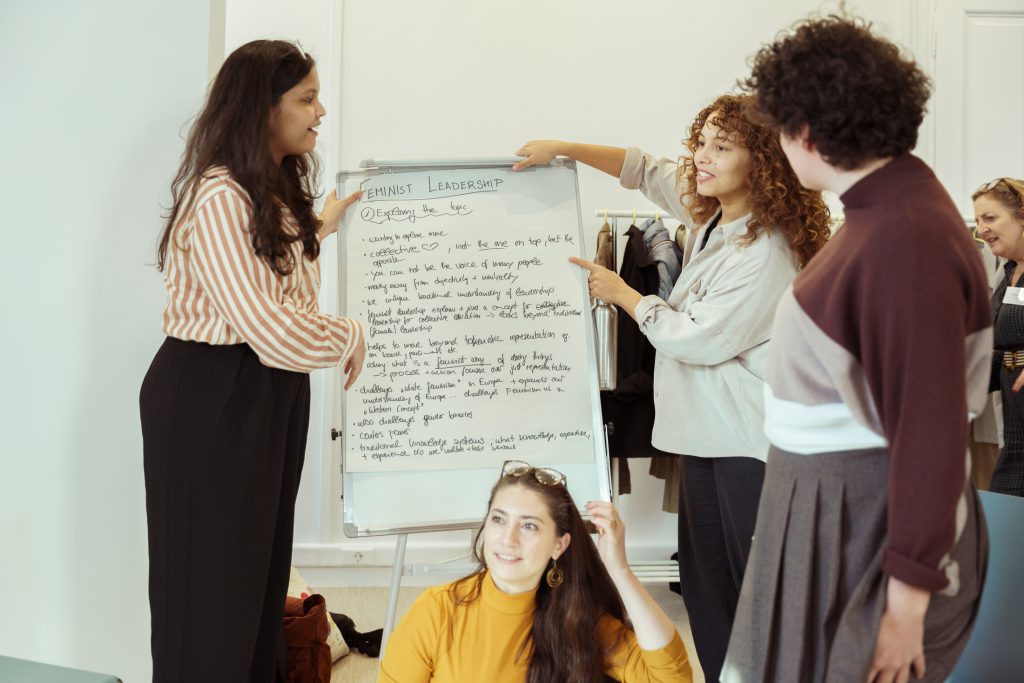
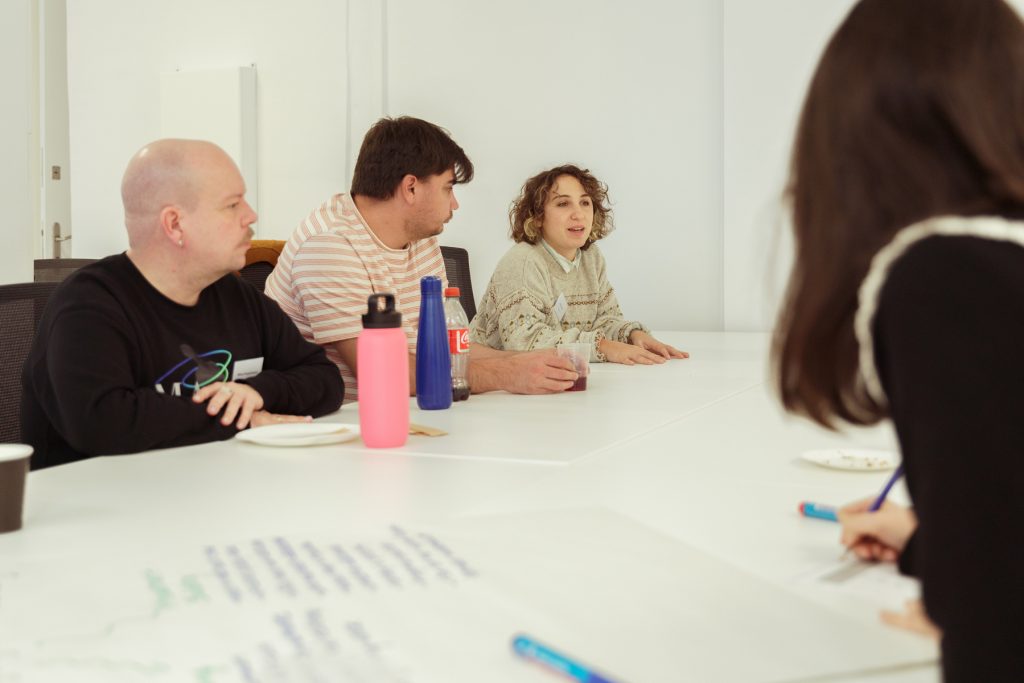
These structured small-group discussions fostered deeper reflections and mutual learning. For example, one participant said: “Attending the feminist leadership World Café session made me realise how important this topic is and how much our organisation could benefit from engaging more with this topic.”
In a storytelling workshop, participants with varying levels of communication skills exchanged advice, cross-pollinating ideas that could be adapted to their own local contexts: “I got excellent feedback and advice for our website and storytelling strategies.”
4. Build in meaningful moments of connection
When organising an event of this ambition, it can be easy to forget that the real value of these gatherings is connection: a chance to feel part of a broader “we.” While structured sessions are important, unstructured opportunities for relationship-building can be just as valuable.
Interactive breakout sessions, shared meals, and informal conversations helped grantee partners connect on both professional and personal levels. One participant shared: “What I enjoyed most about the convening was the opportunity to connect with fellow activists.”
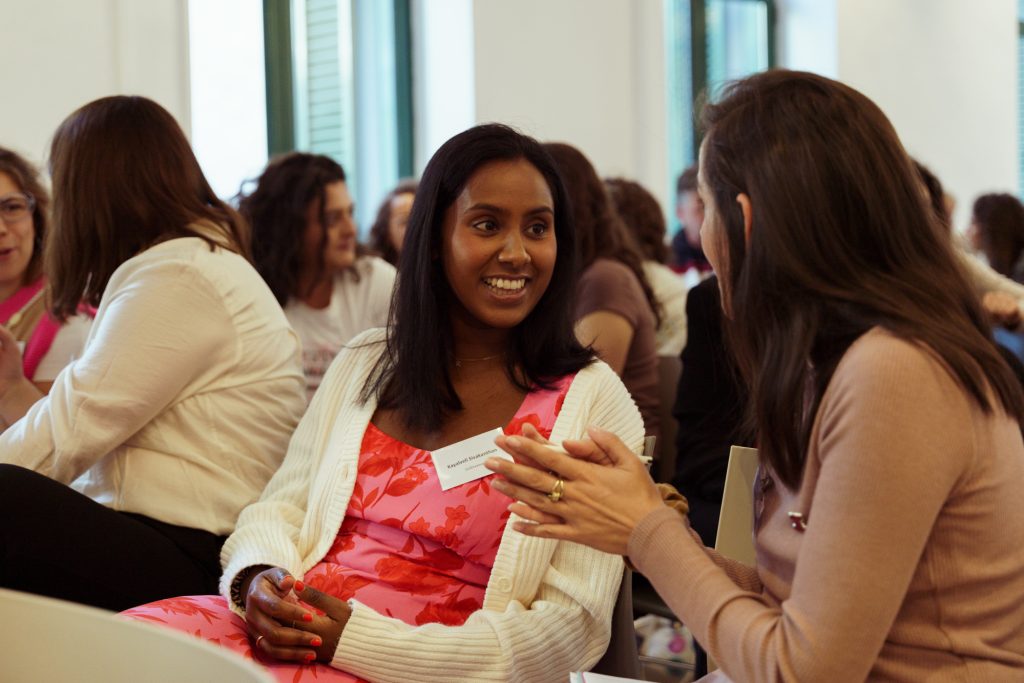
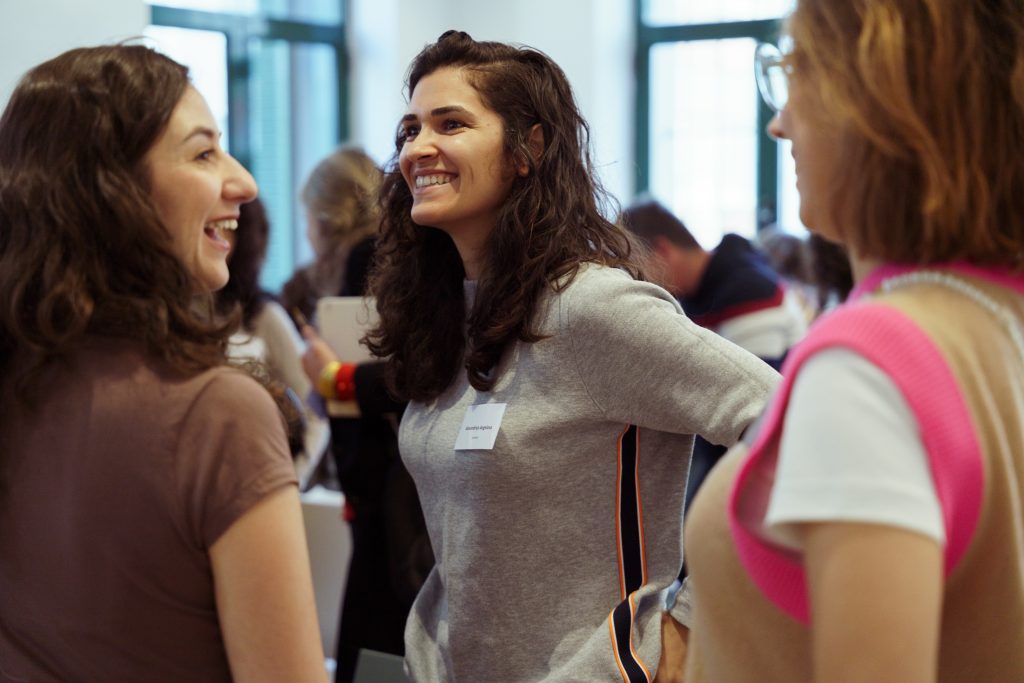
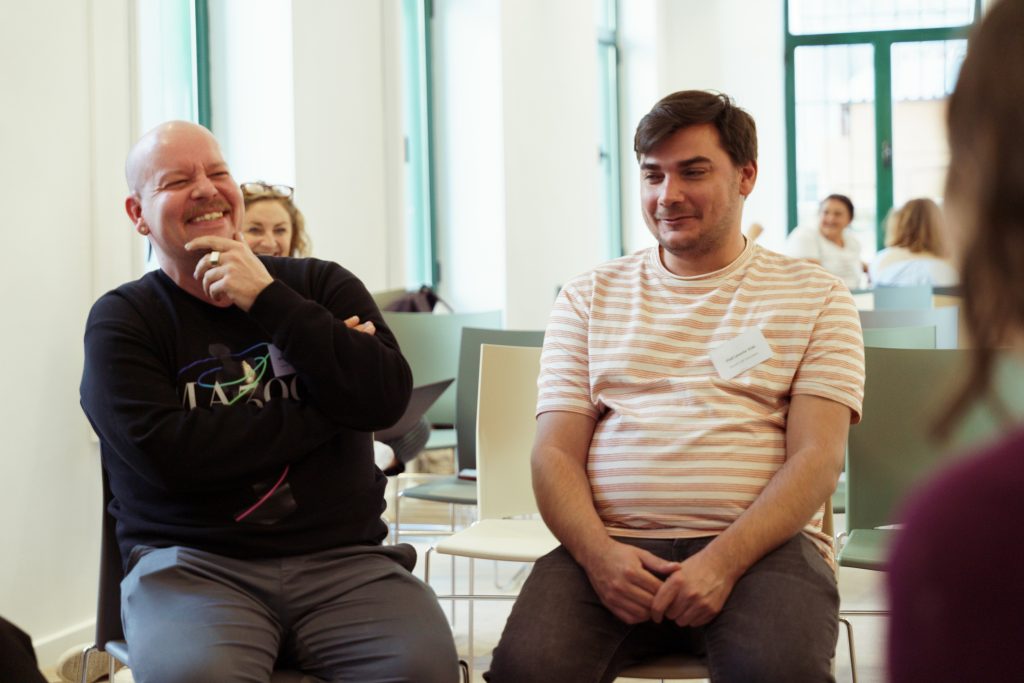
For many participants, often working under financial strain or in politically hostile environments, this convening was a rare chance to step back, bond with peers, and find strength in solidarity.
5. Create opportunities for ripple effects of convenings
A convening’s true power lies in its ability to plant seeds of impact that can grow and thrive far beyond the event itself. Many participants reported that they wanted to stay in touch, forge new alliances, and collaborate to address challenges and opportunities upon returning home. One participant shared: “By speaking to others who are on similar journeys and similar stages, I identified gaps we had missed and ideas folks have shared which will help my own work.”
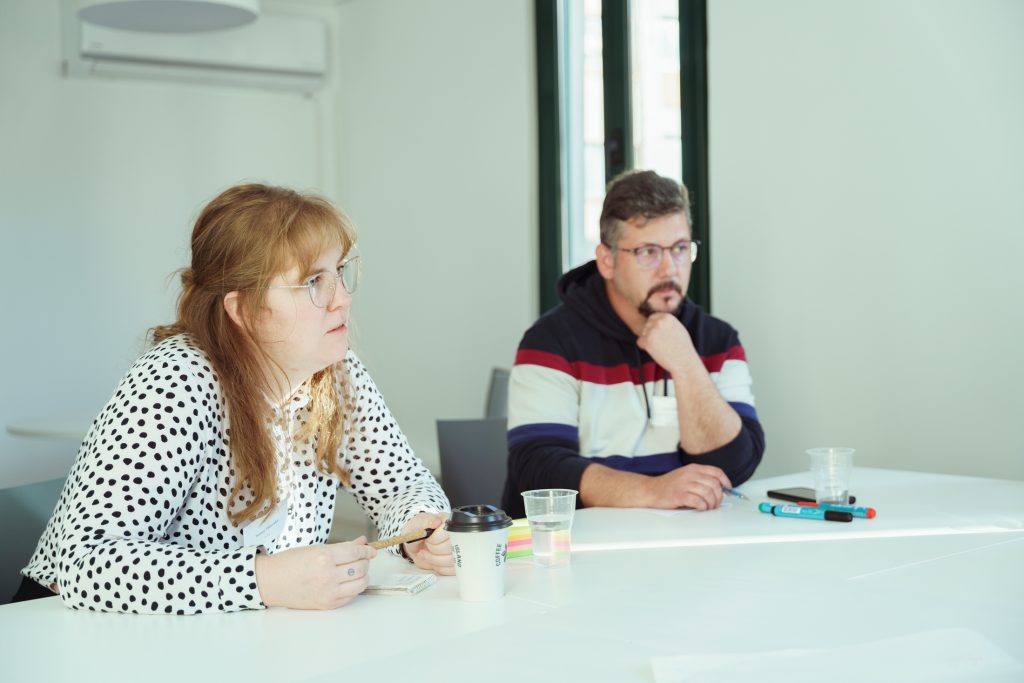
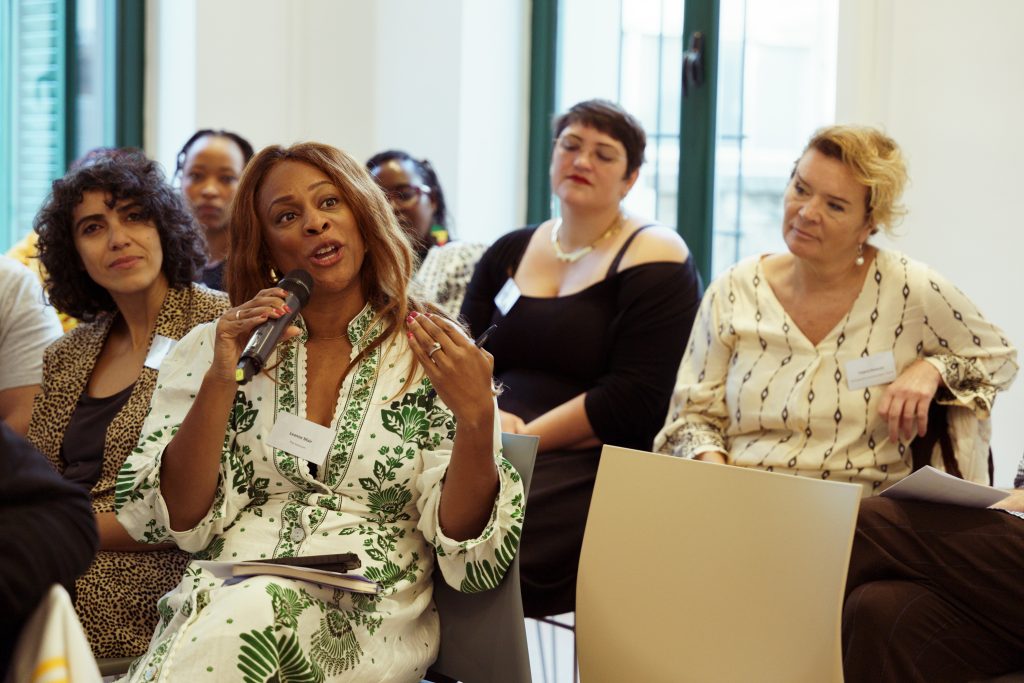
Grantees also planned to integrate lessons from the convening into their work, including:
- Diversifying revenue streams to improve organisational sustainability
- Building networks to counter political and funding backlash
- Implementing strategies to enhance staff well-being
When convenings are done well, they can amplify the impact of grantmaking and capacity-strengthening offered by funders. We aim to build on this year’s lessons by making future editions even more accessible and focusing on deepening collective learning on topics most pertinent to grassroots gender equality organisations in Europe.
Photos by Vasso Paraschi/Alliance for Gender Equality in Europe.
